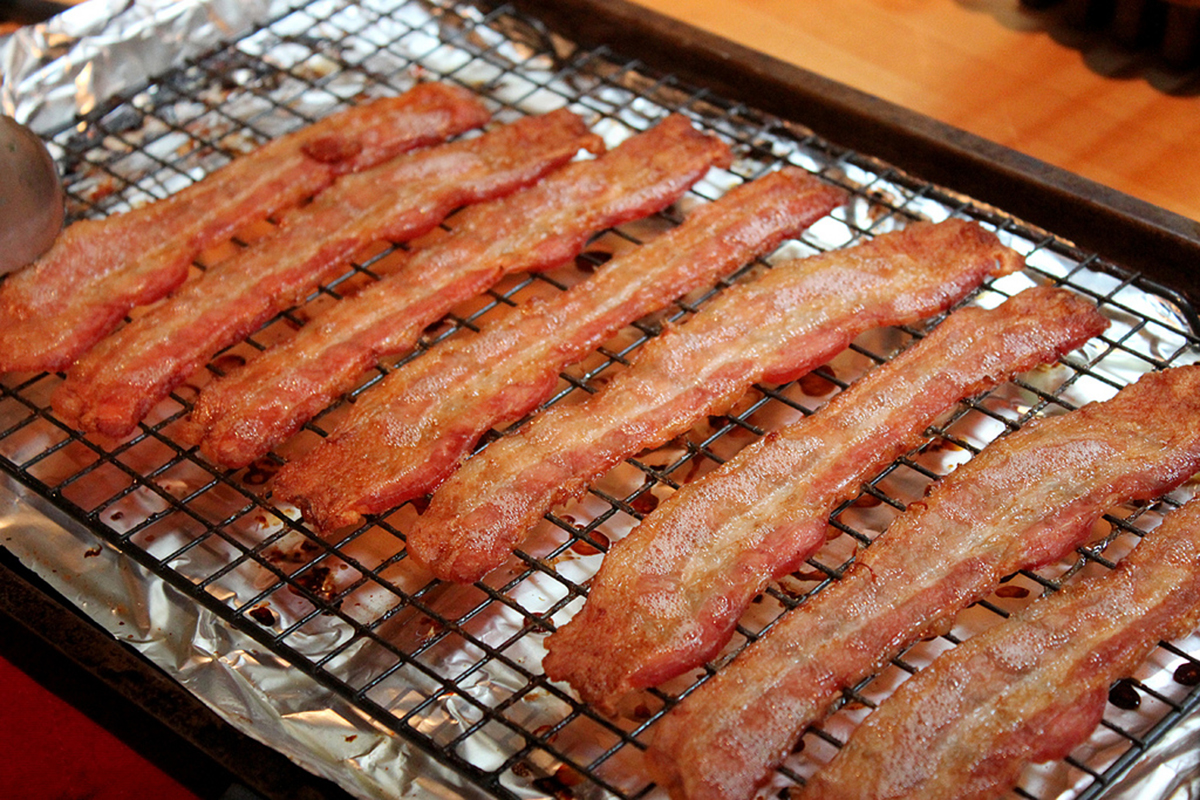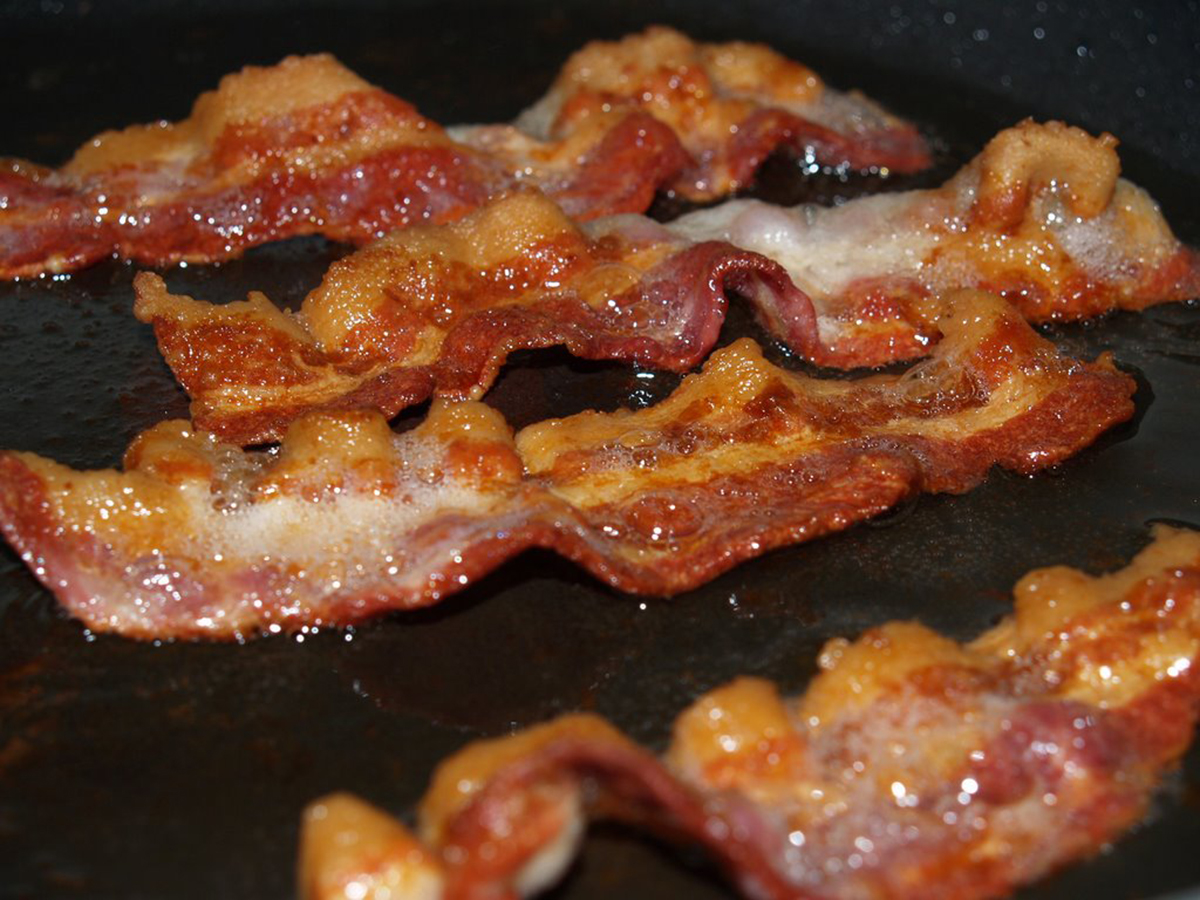The World Health Organization (WHO) really stirred things up when they published a report claiming that bacon, hot dogs, and other processed meats are as likely to cause cancer as cigarettes; putting them in the same danger group with alcohol or asbestos (IACR Group 1). The public and meat manufacturers went mad. They later issued the statement that not all these substances are classified as “equally dangerous”. It was described by the IARC (International Agency for Research on Cancer) that the classifications are not about in which amount something is dangerous, but how much scientific evidence stands behind it. They placed red meat in category 2A (out of five), which means “probably carcinogenic.” Over the years, we have heard many times that they have found “strong evidence” on dangers of meat, but everything seems to be weak. Many renowned scientists disapprove this kind of approach, some of them called WHO's report and all the fuss rather irresponsible.

Science Behind The Claims
For a while researchers are trying to fathom how and why red meat causes cancer, but they now agree it is about some chemicals inside the meat. They claim there's a chemical which dyes the meat red called haem, which in our guts apparently breaks into dangerous compounds called N-nitroso. These little compounds are then doing damage to the cells lining the bowel. Regarding the processed meat, adding the substances to preserve it — or by smoking and salting — meat develops cancerous substances (carcinogens).
The World Heath Organization stated that “this recommendation was based on epidemiological studies suggesting that small increases in the risk of several cancers may be associated with high consumption of red meat or processed meat.” It's been years and years of unproven theories.
For most of our lives, we have been told not to eat fatty foods because — by their very nature — they make us fat. “It's even in the name!” Well, one experiment proved it wrong. A journalist named Gregory Ferenstein did an experiment with bacon. Over the one month period, he stuffed himself with big amounts of bacon and heavy cream, with few pieces of fruit and vegetables here and there (don't do this though). Seventy percent of his calories came from fat. He cut as many carbohydrates as it was possible. Ultimately, he lost seven pounds and one percent body fat. Ferenstein published a report on his experience and how America's hate towards fat is not based on facts, but only in the observational correlation among trans-fat and heart disease. He claims this anti-fat trend is consequently making people devour in other bad food choices, like too much sugar and carbs.
Everyone has different needs and metabolism, and while for someone bacon could be a good pick, for someone else it could cause disasters including hormonal imbalances, heart attack, and even cancer. This is why we always recommend moderation and listening to your body's needs.
Some Bacon Is Better Than Other
Cured And Uncured Meat
“Cured” bacon is commercially prepared with salt and sodium nitrites and additives responsible for bacon's pink color. They maintain flavor, keep the nasty odors away and delay the appearance of bacteria. Cured bacon is considered to be unhealthy because it's high in fat and sodium. Foods high in sodium are proven to raise blood pressure, clog the arteries and cause serious heart problems. Not to mention that they're expanding the body.
The main difference between cured — and supposedly healthier — “uncured” version is preservation process. Uncured bacon is said to be healthier even though it's not actually uncured, just doesn't contain nitrites.

Factory Farming
Ninety-seven percent of all pigs is raised in factory farms. In these dark barns, animals spend their whole lives in metal cages. They're like machines. Barns are covered in hydrogen sulfide and ammonia, poisonous gases coming from pig waste. Barns are often being sprayed with harsh chemicals to kill of bacteria. Manure is being held directly in the vast pits below the pigs. They're constantly fed with soybean and maize, top two genetically modified crops — and antibiotics — just to prevent getting sick before slaughter time. They breathe the poisoned air for six months without catching a break, and then die to become bacon.
So Should You Eat Bacon?
The answer is — yes — if you want to.
But like with everything else in life, it should be done in moderation. The phrase is now a platitude, but it is true. It is all about common sense. To keep people healthy, help them maintain the pleasing amount of weight, and most importantly — to keep the brain satisfied — you can't just make them to stop consuming everything they love just because it is potentially dangerous. Everyone knows alcohol is bad and dangerous when consumed in high amounts, but nevertheless we all love our glass of wine. Recent studies have even shown potential benefits of beer, wine or champagne. And yes, judging by the cancer reports and average Joe's physique, bacon is probably unhealthy if you eat it too often.
READ Dulse Bacon: Delicious, But Not Quite The Real Thing
WCRF (World Cancer Research Fund) advises to consume processed meats rarely, and to eat not more than 500 grams of red meat per week to keep the bowels healthy and cancer free, but the recommendation can be even more reduced. When your diet consists mostly of whole foods, REAL unprocessed foods like fruit and vegetables, fish, chicken and legumes, your body doesn't care that if you eat two slices of bacon with your eggs from time to time.
Jews and Muslims find eating any part of pig repulsive for thousands of years, and they still get cancer. Vegetarians and vegans love bacon in different form, alive, and they still get cancer too. If you do eat bacon, try buying it locally, or buying grass-fed pig belly and make a healthier version of bacon yourself. We all have our ways and habits, and it is all fine as long as it works for us, but it won't work if you can't comprehend that you need variety. Variety and moderation are key to stay healthy — and most importantly — sane.
- Photo courtesy of dinnerseries: www.flickr.com/photos/dinnerseries/5974874958/
- Photo courtesy of cyclonebill: www.flickr.com/photos/cyclonebill/2222309331/
- Photo courtesy of cyclonebill: www.flickr.com/photos/cyclonebill/2222309331/


Your thoughts on this